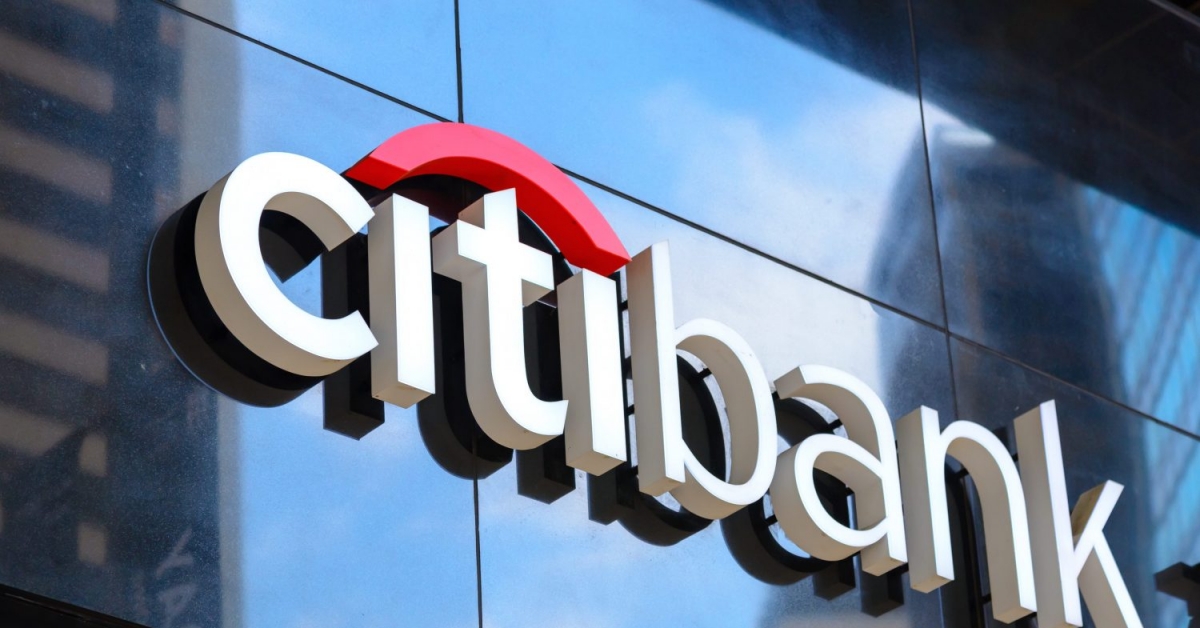The Protocol: How Winklevii Taught Dad BTC, Wild Flight to Singapore
This issue of The Protocol is packed with smart info (and interesting images). We’re covering:
-
The new crypto project backed by former President Donald Trump (who in his spare time is campaigning as the Republican nominee in this year’s U.S. presidential election).
-
How the Winklevoss twins got their father into bitcoin. (Ever wonder about their paternal phenotype?)
-
The tale of a wild chartered plane ride – Dancing! Chanting! Mingling! – of crypto execs and influencers on their way to Token2049 in Singapore from Doha.
-
Vitalik’s silent treatment.
-
Ethereum’s ‘Pectra’ upgrade getting too gangly to push all at once.
-
$80M+ of blockchain project fundraisings.
-
Tokenized real-world assets climb past $12B.
This article is featured in the latest issue of The Protocol, our weekly newsletter exploring the tech behind crypto, one block at a time. Sign up here to get it in your inbox every Wednesday.
Network news
:format(jpg)/cloudfront-us-east-1.images.arcpublishing.com/coindesk/FI37A5HP6VEUHDT5AWGPORNMCA.jpg)
Tyler and Cameron Winklevoss with their father, Howard (Winklevoss family)
OF COURSE THERE’S A TOKEN. Former President Donald Trump’s much-anticipated announcement of a new crypto company, World Liberty Financial, did not disappoint. At least, it didn’t disappoint traders on the Polymarket prediction-betting site who had wagered that the project would announce plans to launch a token. The project’s team – the Republican candidate’s sons Don Jr. and Eric spoke during the X Spaces discussion – was unequivocal that there would be a token, with the ticker WLFI. After a two-hour-plus session that included lots of yuks and crosstalk, however, it was less clear what the company will actually do. The most definitive account came from CoinDesk reporters including Sam Kessler got his hands on a draft white paper revealing that World Liberty Financial might closely reveal a DeFi project called Dough Finance that failed to gain traction and was hacked for $2 million. Both Zak Folkman and Chase Herro, who were responsible for Dough, confirmed their involvement in World Liberty Financial via their appearance on the X Spaces. The lead moderator of the session, Rug Radio’s Farokh Sarmad, expressed astonishment that the elder Trump even showed up – given a schedule packed with rallies, debates, stump speeches, golf and an attempted assassination in Florida the previous day. Politico Morning Money called out the “risks Trump is taking by embracing a business venture his sons are launching less than 50 days before the election.” Eric Trump said on the session that decentralized finance needed to be easier to use for regular people, noting the extreme difficulties he encountered when “looping Ethereum on Aave,” the biggest DeFi lending platform. There wasn’t much discussion of the risks of hacks, exploits and single points of failure that serve as the starting point for a lot of foundational conversations about blockchain-project architecture. Eithan Raviv, CEO of Israeli crypto-recovery firm Lionsgate Network, emailed The Protocol to say that “the major security concerns with this project include a lack of transparency, unclear asset protections and heightened cyber risks due to the high-profile individual involved.”
SILENT TREATMENT? Ethereum co-founder Vitalik Buterin wrote on X that he will avoid any mentions of those projects that aren’t decentralized enough. To merit any ink, they have to at least meet a decentralization threshold known as “Stage 1,” under a hierarchy he laid out years ago in a blog post. “Starting next year, I plan to only publicly mention (in blogs, talks, etc) L2s that are stage 1+,” Buterin wrote. “It doesn’t matter if I invested, or if you’re my friend; stage 1 or bust.”
PIG BUTCHERING CRACKDOWN: The U.S. Securities and Exchange Commission (SEC) has filed suit against three individuals and five companies for allegedly operating pig butchering scams – a type of confidence-enabled investment scam in which fraudsters befriend victims over text-based social media apps, gain their trust and convince them to invest large amounts of money in fictitious crypto platforms before stealing their funds and disappearing. Separately, the U.S. Treasury Department’s Office of Foreign Asset Control (OFAC) announced sanctions against one of Cambodia’s wealthiest businessmen for allegedly playing a role in serious human rights abuses – including human trafficking and torture – tied to a pig butchering scam operation headquartered in the Southeast Asian country.
Bhutan, a Himalayan nation with fewer than 1 million people, has accumulated over $780 million in bitcoin, representing nearly a third of its GDP. “Unlike most governments, Bhutan’s BTC does not come from law enforcement asset seizures, but from Bitcoin mining operations, which have ramped up dramatically since early 2023,” according to Arkham, a blockchain-analysis platform.
Howard Winklevoss, father of the famous crypto twins, is donating $4 million in bitcoin {BTC} in a first-of-its-kind donation to Grove City College, where he developed an interest for sound money and the Austrian school of economics that also later influenced Satoshi. Winklevoss told CoinDesk that he first learned about the principle of sound money at Grove City College while studying under Hans Sennholz, a free-market, Austrian-School economist and professor who had studied under Ludwig von Mises.
Ethereum Devs Poised to Split Blockchain’s Next Big Upgrade, ‘Pectra,’ in Two
:format(jpg)/cloudfront-us-east-1.images.arcpublishing.com/coindesk/6KLEUAMM3FCQ5AQVJ7XCGFEB54.jpg)
The latest Ethereum upgrade is partly named after Electra, one of the “seven sisters” in the star constellation known as Pleiades, shown in an artistic rendering here inside the ring of circles. (Wikipedia, modified by CoinDesk using PhotoMosh)
It’s only been six months since Ethereum, the dominant smart-contract blockchain, had its last major upgrade. But there are so many developer priorities for what to tackle next that there’s a growing realization they can’t all happen at once.
Pectra was on track to be Ethereum’s biggest hard fork to date. (A hard fork, in this case, is the technical blockchain term for the software upgrade.), But some developers argue that the entire package of new features has become unwieldy, and they have expressed a desire to split it due to its complexities, and the risk of doing too much, too fast.
During an All Core Developers call last week, Ethereum developers started to play with the idea that splitting the hard fork into two might be feasible.
EF DevOps Engineer Parithosh Jayanthi, who was one of the core developers pushing to split Pectra, told CoinDesk over Telegram that “we’re talking about splitting it into two forks, mainly to reduce the risk of a bug and to enable faster shipping of both forks.”
Money Center
:format(jpg)/cloudfront-us-east-1.images.arcpublishing.com/coindesk/Y4Z5RLJOURETBAX32PDL4TJLNU.jpg)
Vanishree Rao, founder and CEO of Fermah (Fermah)
-
Fermah has announced its $5.2 million seed round, co-led by the a16z CSX fund and Lemniscap. According to the team, “Founded by seasoned cryptographer Vanishree Rao, who has dedicated the last 15 years to designing and building zero-knowledge proofs (ZKPs), Fermah is optimized for cheap, fast, and reliable ZKP generation, abstracting away the inherent complexity. Fermah generates proofs for any instance in which ZK is used – whether it’s for ZK rollups, ZK bridges, ZK coprocessors, ZKML projects or ZKFHE projects. Fermah is neutral and architected to support all proof systems, including zkVMs, zkEVMs, Groth16 and all other proof systems.”
-
Hemi Labs, the team co-founded by legendary Bitcoin developer Jeff Garzik, has raised $15 million in investment to develop and launch Hemi Network, a layer-2 blockchain that has been built on both Bitcoin and Ethereum, the company said on Wednesday.
-
Also (details in
Protocol Village
column): Fuse ($12M), Pipe ($10M) Gunzilla ($6M), Infinit ($6M), Cudis ($5M), Yellow ($10M), LogX ($4M), Wingbits ($3.5M), Titan ($3.5M), Limitless Labs ($3M), Universal Health Token ($1.2M)
:format(jpg)/cloudfront-us-east-1.images.arcpublishing.com/coindesk/OZHXZ3S3CJEIDM6BOEHXKVBHEA.jpg)
DAIS Chair Michael Casey moderating a panel at the DeAI Summit Singapore. (Amitoj Singh/CoinDesk)
Protocol Village
Top picks of the past week from our Protocol Village column, highlighting key blockchain tech upgrades and news.
:format(jpg)/cloudfront-us-east-1.images.arcpublishing.com/coindesk/GBJUBPFCINAF3LGNZ6T7YKEMHA.png)
Screenshot from demo of Lumerin’s AI image generator on Morpheus chat interface. In this case the user asked for an image of a red cat. (Lumerin)
-
PROTOCOL VILLAGE EXCLUSIVE:
Lumerin
, an open-source Web3 data routing protocol, announced it’s added a new AI image generation feature to the chat interface of
Morpheus
, a decentralized AI network, by integrating with
Prodia
, the leading cloud platform for AI inference solutions. According to the team: “Morpheus chat users can now access a wide variety of AI models to quickly generate AI images at low cost. The news is another example of how the AI industry is using decentralized, Web3 solutions to lower AI compute costs and drive adoption for businesses and consumers.”
-
Maelstrom, an investment fund managed by the family office of Arthur Hayes, announced that Rkrux, an experienced software engineer who started reviewing Bitcoin Core pull requests in March 2024, is the first recipient of the Maelstrom BitcoinyellGrant Program, to continue his research and development work. According to a press release, Rkrux (ostensibly a pseudonym) completed the Chaincode Labs Bitcoin FOSS program earlier this year, and was recently featured on the Bitcoin Optech Newsletter #319 Recap Podcast.
-
NEAR.AI’s product is plugging into Hyperbolic’s global GPU network to power their AI tools, according to a blog post: “By routing their AI tasks through our decentralized infrastructure, the AI Developer will be able to handle everything from simple queries to complex inference tasks with speed and reliability. Our Proof of Sampling ensures computations are accurate, while Proof of Response makes sure the results are fast and trustworthy.”
-
Threshold Network’s tBTC, a decentralized wrapped bitcoin alternative, has become the first incentivized bitcoin asset on EigenLayer, a restaking protocol on Ethereum. According to the team: “This integration allows users to restake tBTC to earn rewards while contributing to the security of the BitcoinFi ecosystem. It marks a significant step in expanding Bitcoin’s role in the DeFi.”
-
“Entertainment Datasphere”
Redacted
hosted 320 Web3 professionals on what was described as a “once-in-a-lifetime sky networking event” from Dubai to Singapore on Sept. 15 to attend this year’s
Token2049
, according to the team: “Throughout the 10-hour flight via Doha, passengers were treated to non-stop entertainment, games, giveaways, networking and fun, with some of Web3’s top KOLs and influencers out of their seats mingling, chatting, dancing, jumping up and down, and
chanting
‘Redacted, Redacted, Redacted,’ before touching down at Singapore Changi International airport. On the Qatar Airways flight chartered by the Redacted team were key figures and partners from Polygon, Animoca Brands and Aethir, along with notable influencers such as Mario Nawfal, NFT whale Grail, Professor Crypto, Andres Meneses and the Crypto Banter team.”
:format(jpg)/cloudfront-us-east-1.images.arcpublishing.com/coindesk/VZF45ZJBTBHWFJFSYQWO22G65A.png)
Photo of passengers boarding the plane, from Redacted press release (Redacted)
Tokenized Real-World Assets Climb Past $12B: Binance Research
:format(jpg)/cloudfront-us-east-1.images.arcpublishing.com/coindesk/626TWNQ2TVDXLOUDXCBBIV7JZA.png)
Market value of on-chain RWAs. (Binance Research)
The market value of on-chain real-world assets (RWAs), excluding stablecoins, continues to rise, representing continued investor interest in blockchain-based tokenization of traditional assets, CoinDesk’s Omkar Godbole reports.
Calendar
-
Nov. 10:
OP_NEXT
Bitcoin scaling conference, Boston.
-
Jan. 21-25:
WAGMI
conference, Miami.









